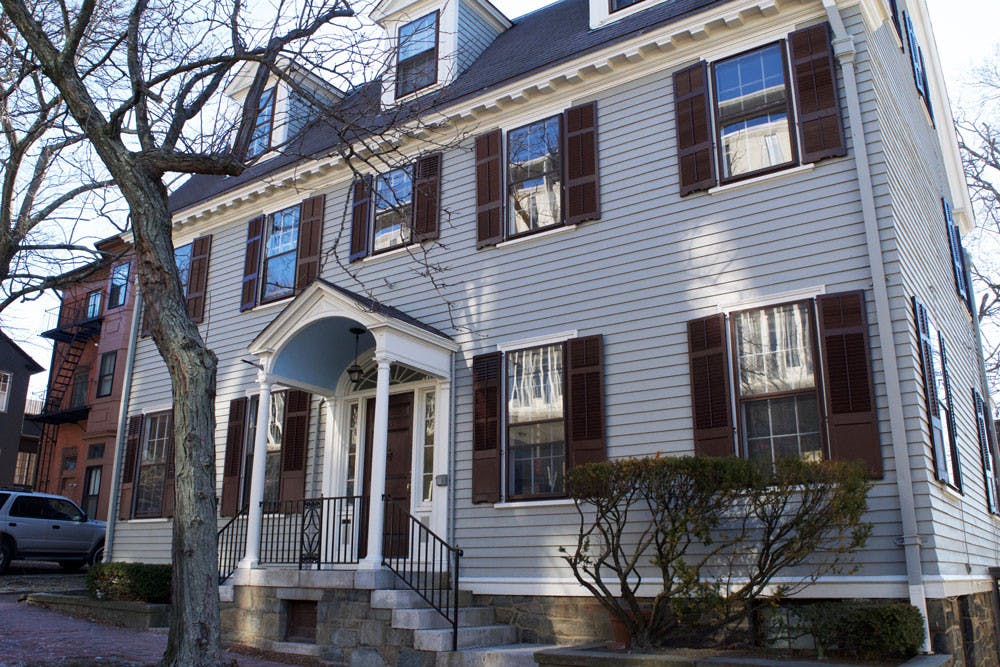Forty first-years in the new Bonner Community Fellows program have completed what students describe as a sometimes contentious but formative first semester working with local Providence organizations.
Housed in the Swearer Center for Public Service, the Bonner Community Fellows program develops and supports a cohort of student leaders from primarily first-generation, low-income and underrepresented communities, said Juan Carlos Carranza ’12 UEP ’15, program manager.
The students were accepted into the program in August after applying over the summer, said Angie Kim ’20, a Bonner Fellow.
The program requires students to spend four years working with one of the Swearer Center’s community partners, attend weekly meetings that provide workshops and training and achieve certain milestones built into the program, Carranza said. Those milestones include a trip at the end of freshman year, meetings and exchanges between Bonner Fellows at other institutions and a “presentation of learning” in the fourth year, he added.
Students on financial aid also receive a stipend of $1,000 each semester, Carranza said.
Swearer developed the Bonner Community Fellows program for students interested in service who cannot otherwise afford years of unpaid work, said Benjamin Miller-Gootnick ’17.5, a member of the Student Advisory Committee for the Swearer Center.
Before the Bonner fellowship, community fellows at Swearer would spend several years working up to a leadership position before earning a stipend. The new program more effectively supports students the center has not been able to reach previously, multiple sources said.
“The stipend offsets the burden of doing Bonner, but it’s not the same as having a job,” Kim said.
Students, community partners and the Swearer Center all benefit from the program, Carranza said. Students gain a cohort of like-minded fellows, community partners receive students with a long-term commitment and the Swearer Center fosters a group of students who weave their academics with community, he said.
The Bonner Fellows program is based off of the Bonner Scholars program, which partners with more than 60 institutions nationwide, Carranza said.
Because the program is new, the fellows “are building the program along with us,” Carranza said. Each year, the total number of Bonner Fellows will grow as 40 new incoming freshmen are picked from the application pool to join the program.
Adding this many students each year worries Bonner Fellow Fariha Kohistani ’20. “I think they bit off a bit more than they can chew,” she said.
The program is so new that the Swearer Center cannot yet assess its success, Carranza said. “One thing that has gone right is just that it’s happening … that it exists,” he added.
“It’s a good program … but people feel really burdened by their work,” which includes a weekly six to 12 hours of community service at an off-campus location, an hour-and-a-half-long meeting and a one- to two-hour-long study block in which fellows gather to tackle their classwork together, Kohistani said.
Swearer has made changes to lessen the time commitment, Kim said, such as shortening mandatory weekly meetings and offering multiple days for what students described as the “burdensome” study block requirement. Though students acknowledge the changes, they expressed some doubt about how meaningful they may be, Kim said.
Still, Kohistani voiced her appreciation for Bonner. “We are very much a family … and we really do love each other,” she said.
“The sense of community is very strong,” Kim said. It’s “nice to get off campus” and realize that “Providence is not my place,” she added.





